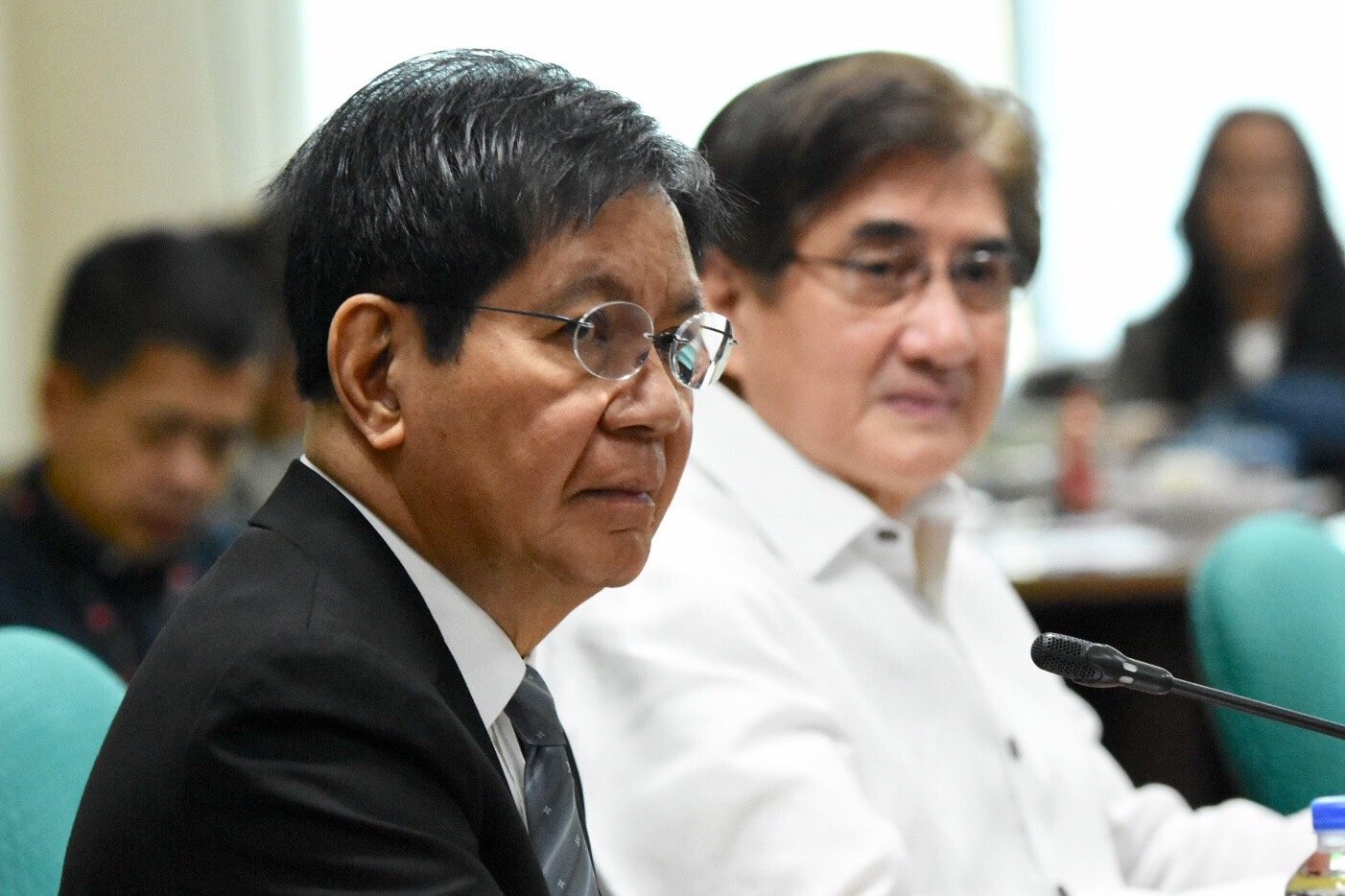SUMMARY
This is AI generated summarization, which may have errors. For context, always refer to the full article.

MANILA, Philippines (UPDATED) – The Senate committees on public order and dangerous drugs, and national defense and security on Tuesday, November 27, backed the proposal of the National Intelligence Coordinating Agency (NICA) to empower the government to shut down social media accounts which the agency considers “inimical to national interest” or are linked to terrorism.
The chairpersons of the committees said during a Senate hearing on Tuesday, November 27, that the proposal, which would give such powers to the Department of Information and Communication Technology (DICT), would be included in the consolidated bill seeking to amend Republic Act 9372 or the Human Security Act of 2007.
NICA, under the Office of the President, proposed the particular amendment during the hearing. It got the support of Senator Panfilo Lacson, public order committee chair, and Senator Gregorio Honasan II, national defense committee chair.
If the measure is passed into law, Honasan, incoming DICT chief, would be in charge of implementation.
“Definitely [it will be included]. In other countries as mentioned by one of the resource persons, the minister of transportation, for example, in Australia is within his mandate to shut down any account he deems na mag-a-add ng peril pagdating sa terrorism (would add peril when it comes to terrorism),” Lacson told reporters after the hearing.
“It will be incorporated in the proposed amendments, which will be finalized in the committee report and be submitted by the chairman for plenary debates,” Honasan said in an interview.
Lawyer Roberton Lapuz of NICA said the agency got the “inspiration” from other countries like India, which has the power to ban social media applications that are deemed “inimical to the national interest.”
“I earlier mentioned that we wanted the DICT to be empowered and to have the authority to be able to shut down social media accounts in Facebook, Twitter, and similar other mechanisms,” Lapuz said.
“We are similtar to India, the Philippines has a very huge number of users of internet and this is a strong argument that we compel these social media businesses to comply with requirements of national security,” he added.
Marwil Llasos, anti-terrorism program coordinator of the Institute of International Legal Studies, backed the proposal and said “what is paramount is the police power of the state.”
He also said the government is allowed to take down sites which committed lower crimes than terrorism.
“Anything harmful or hurtful to the comfort, public safety, public order, can definitely be regulated by the Senate. Here we are all aware that the social media has been used as a means for radicalization. The state has to preserve itself. We don’t have to wait for something to happen…. We don’t want another Marawi to happen,” Llasos said.
What about freedom of expression?
Lacson and Honasan both acknowledged that such provision would be “contentious” but assured the public that the proposed measure would stand legal scrutiny if questioned before the High Court.
“Definitely [contentious], tinanong ko kanina paano mo ibabangga ito sa freedom of speech and freedom of expression dahil we’re dealing with social media, which is expression. So we’ll [put] it in a language na hindi maging masyadong contentious at will pass the test ‘pag challenged ito sa SC [Supreme Court],” Lacson said.
(Definitely [contentious], I asked earlier, how can you reconcile this with freedom of speech and freedom of expression because we are dealing with social media, which is expression. So we’ll put it in language that would not be so contentious and will pass the test if challenged before the Supreme Court.)
“It will be, definitely. Of course because of threat to privacy but then again, threats to privacy weighed against threats to life liberty and property, it’s obvious in whose favor we must resolve that,” Honasan said.
Asked how sure he is the proposal would not be used against government’s critics or enemies, Honasan said: “We cannot be sure. All we can do is provide adequate safeguards, that will be a matter of national consensus.”
During the hearing, the incoming DICT chief also asked Llasos if the proposal also covers “incomplete, inaccurate, malicious information” by the media.
“Alam mo naman (You know) politicians, you never provoke an argument with someone with a microphone, TV camera, talo ka doon (you will lose). Is there any mechanism as it relates to this so we can rationalize this relationship? So we are not subjected to premature trial by publicity as happened many times in the past,” Honasan said.
Llasos said media companies should have their own code of ethics and that the government could not legislate it. But a provision mandating “balanced reporting” especially on terrorism, he added, could be included in media companies’ franchises, which are approved by Congress. – Rappler.com
Editor’s Note: An earlier version of this report failed to state clearly that the quote “inimical to public interest” was used by the NICA and not by the senators presiding the hearing.
Add a comment
How does this make you feel?
There are no comments yet. Add your comment to start the conversation.